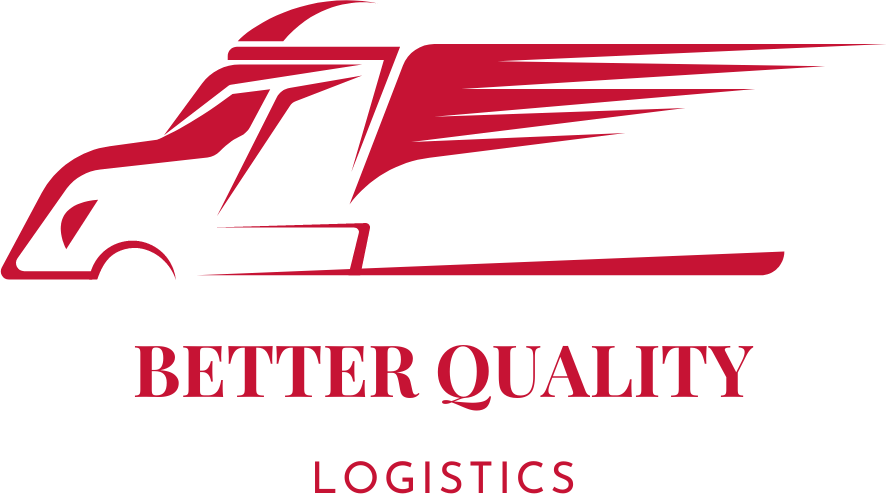If you’re interested in learning about the outbound logistics definition, examples, processes, and advantages, then you’ve come to the right place. Outbound logistics is the process of getting a product from a source to a location, and it involves the customer’s requirements.
Outbound logistics is not a new concept. It has been in existence for many years. But, now and then, this term pops up in the supply chain management industry and people are not sure what it means.
In this blog, we’ll cover different factors in outbound logistics and how it affects your business.
What is outbound Logistics?
The definition of outbound logistics refers to the transportation and storage of finished products as they move from the end of the production process to the customer. In other words, outbound logistics is all about getting the right product to the right customer at the right time.
There are many different factors to consider when managing freight outbound logistics, including transportation, warehousing, and customer service. Transportation must be carefully coordinated to get products to customers in a timely and cost-effective manner.
Warehousing must be designed and managed to allow quick and accurate picking and packing of orders. And finally, customer service must be responsive and proactive to ensure that orders are delivered as promised and that any issues are resolved quickly.
Managing outbound logistics can be complex and challenging, but it is a critical part of the overall supply chain. By carefully planning and executing all aspects of an outbound logistic process, companies can ensure that their products reach their customers on time and in perfect condition.
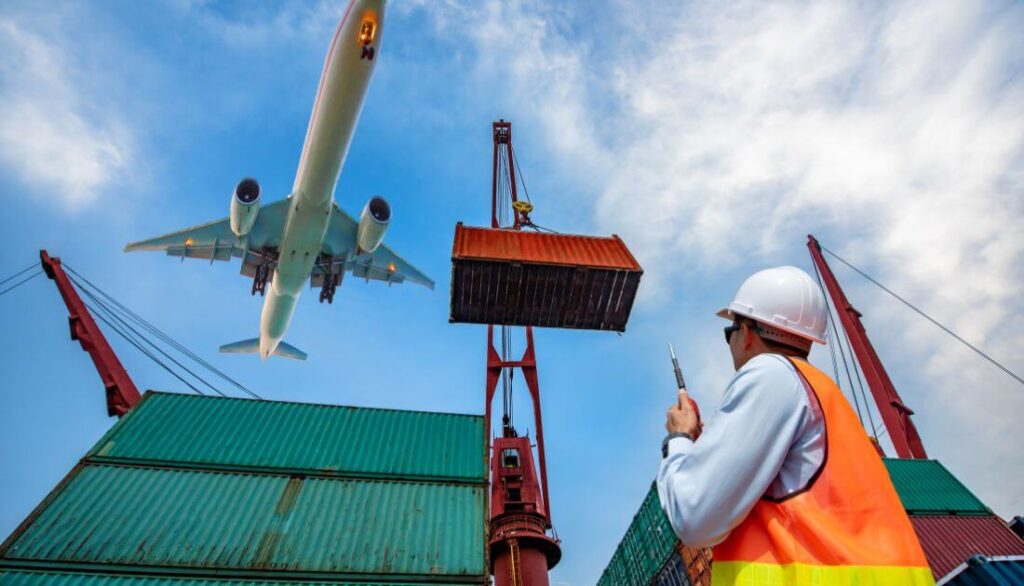
The Importance of outbound Logistics in the Supply Chain
In a global economy, businesses need to be able to move goods quickly and efficiently to meet customer demand. This is where outbound logistics comes in. Outbound logistics is part of the outbound supply chain that deals with the transportation and shipping of finished products to the customer.
An efficient outbound logistics system is essential for businesses that want to stay competitive. It can help them to get their products to market faster and at a lower cost. It can also help them to respond quickly to changes in customer demand.
Outbound logistics is a complex and challenging area of supply chain management. But it is also an essential part of the business. By working to improve their freight outbound logistics, businesses can keep their costs down and their customers happy.
You can follow more: Importance of logistics service in supply chain management.
Strategies: How to Optimize your outbound Logistics
To optimize your outbound logistics, you will need to implement various strategies. Some of the outbound logistics include using the right transportation mode, using technology, and improving communication.
The first strategy is to use the right transportation mode. This means choosing the mode of transportation that is best suited for your products. You will need to consider factors such as cost, time, and distance when making your decision.
The second strategy is to use technology. Technology can help you track your shipments, manage your inventory, and automate your processes. By using technology, you can optimize your outbound logistics and improve your efficiency.
The third strategy is to improve communication. Communication is key when coordinating shipments. You will need to communicate with your suppliers, your customers, and your transportation providers. By improving communication, you can optimize your outbound logistics and avoid delays.
Outbound Logistics Example
Outbound logistics refers to the outbound process of managing the storage and transportation of finished products from a company to its customers. In many cases, freight outbound logistics is managed by a third-party logistics provider (3PL) that specializes in managing these types of operations.
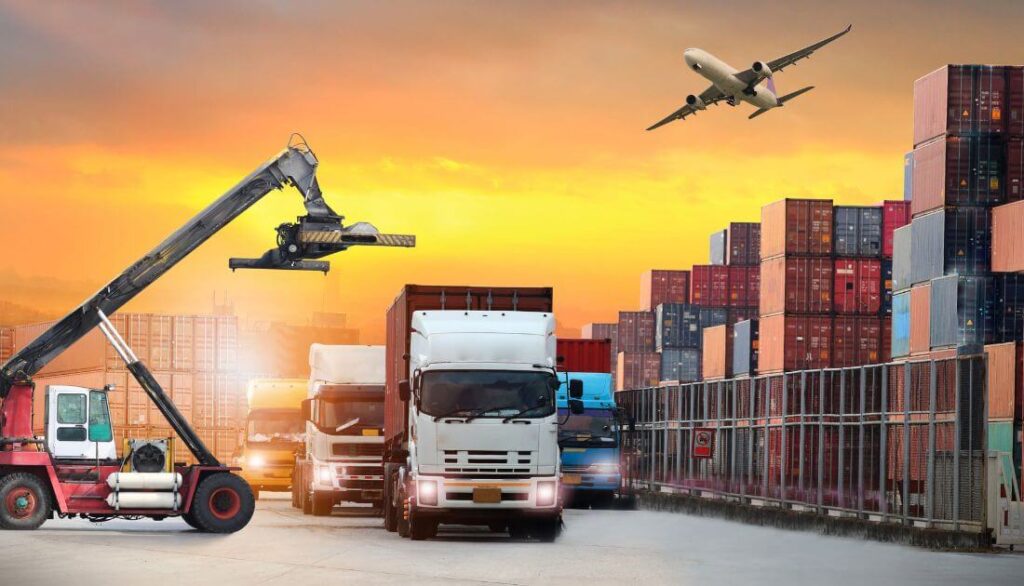
An outbound logistics example would be a company that manufactures and sells furniture. Once the furniture is produced, it needs to be stored in a warehouse until it is ready to be shipped to the customer.
The company would need to work with a 3PL to manage the storage and transportation of the furniture to the customer.
An effective outbound logistics system is critical to a company’s success, as it ensures that products are delivered to customers in a timely and efficient manner.
A well-run outbound logistics operation can also help to improve customer satisfaction and loyalty, as customers are more likely to be satisfied with a company that delivers its products on time and in good condition.
To ensure that outbound logistics are running smoothly, companies need to have a clear understanding of their shipping needs and requirements.
They must also have a strong relationship with their shipping partners so that they can work together to ensure that products are delivered safely and on time.
If you’re thinking of exploring logistics in more detail, this article is a great way to learn more about Understand Everything about Logistics.
Primary Key Activities of outbound Logistics Process:
There are four primary key activities in the outbound logistics process: transportation, inventory management, warehousing, and customer service.
Transportation
Transportation refers to the movement of goods from the point of production to the point of sale. This can be done via various means of transportation, such as trucks, trains, ships, and planes.
Inventory management
Inventory management is the outbound process of tracking and managing inventory levels to ensure that businesses have the right amount of stock on hand to meet customer demand. This includes activities such as stock control, order outbound processing, and warehouse management.
Warehousing
Warehousing is the storage of goods until they are needed. This can be done in a variety of ways, such as in a company’s warehouse, in a third-party warehouse, or in a retail store.
Customer service
Customer service is the process of providing assistance and support to customers before, during, and after a purchase. This can include activities such as answering customer questions, handling customer complaints and providing order tracking information.
What does Outbound Logistics cover?
Outbound logistics covers the transportation and storage of finished products as they move from the manufacturing facility to the customer.
This includes coordinating with suppliers, managing inventory, and selecting the most efficient outbound shipping methods. Outbound logistics is a critical part of the outbound supply chain and can have a big impact on customer satisfaction.
The goal of outbound logistics is to ensure that finished products are delivered to customers in a timely and efficient manner. This requires a careful balancing of cost, service, and speed. By carefully managing freight outbound logistics, companies can improve their customer satisfaction levels and overall profitability.
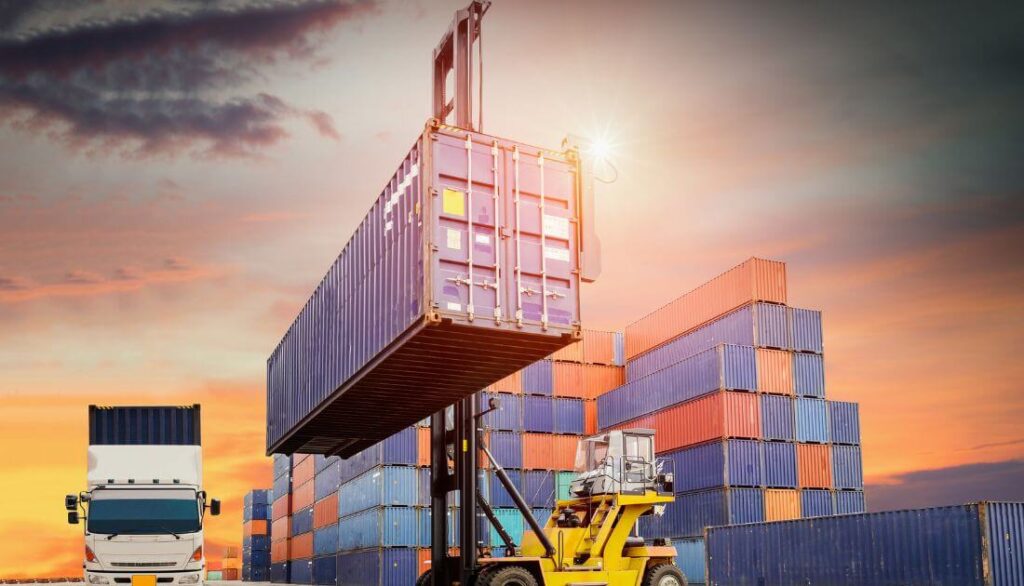
The Advantages of outbound Logistics
There are many advantages to outbound logistics, including the ability to control costs, improve customer service, and increase efficiency. By outsourcing your logistics needs, you can gain access to a team of experts who can help you streamline your operations and save money.
In addition, by using an outbound logistics provider, you can improve your customer service by ensuring that orders are filled and shipped on time.
Finally, an outbound logistics provider can help you increase your efficiency by managing your inventory and transportation needs. Some of these advantages are described below-
Better Management
There are several ways in which outbound logistics can be better managed to improve efficiency and effectiveness. One way is to streamline the process of loading and unloading goods onto vehicles.
This can be done by using conveyor belts or other automated systems. Additionally, careful planning and coordination of transportation schedules can help to avoid delays and disruptions.
Another way to improve outbound logistics is to make use of tracking technologies such as GPS to monitor the progress of shipments and ensure that they are delivered on time.
Faster Delivery
Faster delivery of outbound logistics is essential for businesses that rely on efficient and timely outbound shipping of their products.
By reducing the time it takes to ship products from the point of manufacture to the customer, businesses can improve their bottom line and keep their customers happy.
There are several ways to improve the speed of outbound logistics. One way is to streamline the outbound process from start to finish, from the moment the product is ready to ship to the moment it arrives at the customer’s door.
This can be accomplished by automating as much of the outbound process as possible, and by ensuring that all of the necessary information is readily available and easily accessible.
Less handling and damage, efficient receiving
Receiving logistics is a process that involves the receiving, handling, and recording of the outbound shipment. This process is typically handled by a third-party logistics provider, which can help to improve efficiency and reduce damage.
An efficient receiving process is important for businesses that ship products regularly. By reducing the amount of time that products spend in transit, businesses can reduce the risk of damage and improve customer satisfaction.
By using a third-party logistics provider, businesses can take advantage of their expertise and experience in managing receiving logistics. This can help to improve the efficiency of the process and reduce the amount of damage that occurs.
Stronger vendor relationships
To build stronger vendor relationships, outbound logistics need to focus on creating a collaborative environment. This means working closely with vendors to ensure that everyone is on the same page and that everyone understands the company’s objectives.
It also means being transparent with vendors and sharing information openly. By building strong relationships with vendors, outbound logistics can create a more efficient and effective outbound supply chain.
Challenges of outbound Logistics
Many challenges can impact the success of outbound logistics. One of the most important is ensuring that products are properly packaged and shipped so that they arrive at their destination in good condition.
This can be a challenge when products are delicate or require special handling. Another challenge is coordinating with different outbound shipping companies to get the best rates and delivery times.
This can be a complex and time-consuming process. Additionally, outbound logistics can be impacted by weather conditions and other unexpected events. This can make it difficult to ensure that products are delivered on time and as expected.
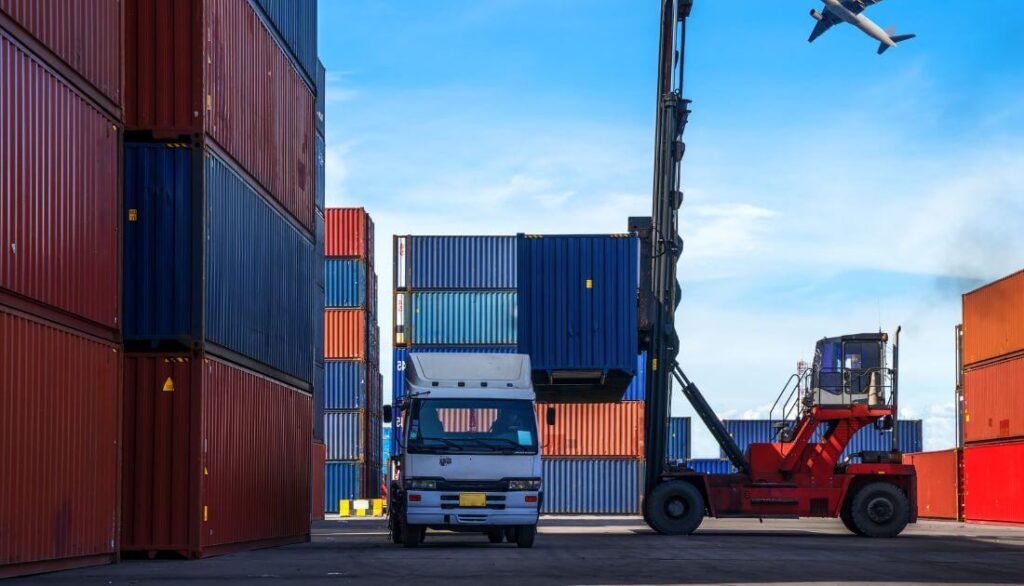
What does outbound transportation cost?
There are many variables to consider when calculating the cost of outbound transportation. The most important factor is the distance the goods need to travel.
Other important factors include the mode of transportation (truck, train, ship, etc.), the weight and volume of the goods, and the type of goods being shipped.
In general, the farther the goods need to travel, the more expensive the outbound transportation will be. However, other factors can offset the distance factor.
For example, outbound shipping by truck is generally more expensive than shipping by train, but if the goods are very heavy or bulky, trucking may be the only option.
The cost of outbound transportation also depends on the type of goods being shipped. Hazardous materials or perishable goods may require special handling, which can add to the cost.
Ultimately, the best way to get an accurate estimate of outbound transportation costs is to contact a shipping company and get a quote based on the specific details of the outbound shipment.
BQL Logistics Services Can be Your Shipping Partner
If you’re looking for a shipping partner that can provide reliable and affordable logistics services in Florida, look no further than BQL Logistics. We offer a wide range of shipping and logistics services that can be customized to meet your specific needs.
Whether you need to ship a small package or a large shipment, we can provide the services you need to get your outbound shipment where it needs to go.
We also offer a variety of value-added services to make your shipping experience as hassle-free as possible. Contact us today to learn more about how we can be your shipping partner.
Frequently asked questions: (outbound Logistics)
What are outbound logistics and manufacturing?
Most businesses don’t rely entirely on their inventory. They rely on a network of suppliers, distributors, and manufacturers to provide them with products. These businesses use outbound logistics to bring the right products, in the right quantities, at the right time.
What is outbound logistics in a value chain?
An outbound logistics value chain is the process of moving the goods and services produced by a company or organization to the company’s customers.
In contrast, inbound logistics is the process of receiving raw materials and delivering them to processes that will use them. The outbound and inbound logistics processes and systems are closely linked and often overlap in the supply chain.
How to calculate outbound logistics?
The cost of outbound logistics is the cost of shipping goods to customers. It should not be confused with Distribution cost which is the cost of shipping goods from the manufacturer/seller/wholesaler to the closest warehouse or store. This cost is not borne by the end customer.
Conclusion
One of the most important aspects of any business is logistics. Logistics is the management and coordination of all of the resources required to effectively run a business.
Outbound logistics is a subset of logistics that focuses on the processes and procedures used to get a product from the point of manufacturing to the point of sale.
The management and coordination of outbound logistics can be used to reduce the cost of goods sold, increase profit margins, and improve customer service.
